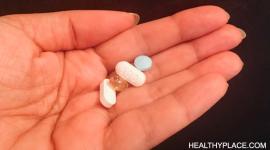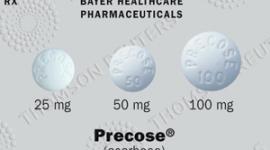Onglyza Diabetes Treatment - Onglyza Patient Information
Brand Name: Onglyza
Generic Name: Saxagliptin
Onglyza, saxagliptin, full prescribing information
What is Onglyza?
Onglyza (saxagliptin) is an oral diabetes medicine that helps control blood sugar levels. It works by regulating the levels of insulin your body produces after eating.
Onglyza is for people with type 2 diabetes (non-insulin-dependent) diabetes. Saxagliptin is sometimes used in combination with other diabetes medications, but is not for treating type 1 diabetes.
Onglyza may also be used for other purposes not listed here.
Important information about Onglyza
Do not use Onglyza if you are allergic to saxagliptin or if you are in a state of diabetic ketoacidosis (call your doctor for treatment with insulin).
If you have kidney disease or you are on dialysis, you may need a dose adjustment or special tests to safely take Onglyza.
You may take this medicine with or without food. Follow your doctor's instructions.
Follow your doctor's instructions about any restrictions on food, beverages, or activity while you are taking Onglyza.
Onglyza is only part of a complete program of treatment that also includes diet, exercise, weight control, and possibly other medications. It is important to use this medicine regularly to get the most benefit. Get your prescription refilled before you run out of medicine completely.
Before taking Onglyza
Do not use Onglyza if you are allergic to saxagliptin, or if you are in a state of diabetic ketoacidosis (call your doctor for treatment with insulin).
If you have kidney disease or you are on dialysis, you may need a dose adjustment or special tests to safely take Onglyza.
FDA pregnancy category B. Onglyza is not expected to be harmful to an unborn baby. Tell your doctor if you are pregnant or plan to become pregnant during treatment. It is not known whether saxagliptin passes into breast milk or if it could harm a nursing baby. Do not use this medication without telling your doctor if you are breast-feeding a baby. Onglyza should not be given to a child younger than 18 years old without a doctor's advice.
See also: Pregnancy and breastfeeding warnings in more detail.
How should I take Onglyza?
Take Onglyza exactly as prescribed by your doctor. Do not take it in larger amounts or for longer than recommended. Follow the directions on your prescription label.
Your doctor may occasionally change your dose to make sure you get the best results from Onglyza.
You may take this medicine with or without food. Follow your doctor's instructions.
Your medication needs may change if you become sick or injured, if you have a serious infection, or if you have any type of surgery. Your doctor will tell you if any of your doses need to be changed.
Onglyza is only part of a complete program of treatment that also includes diet, exercise, weight control, and possibly other medications. It is important to use this medicine regularly to get the most benefit. Get your prescription refilled before you run out of medicine completely.
To be sure Onglyza is helping your condition, your blood will need to be tested on a regular basis. Your kidney function may also need to be tested. It is important that you not miss any scheduled visits to your doctor.
Store Onglyza at room temperature away from moisture and heat
What happens if I miss a dose?
Take the missed dose as soon as you remember (be sure to take the medicine with food if your doctor has instructed you to). If it is almost time for your next dose, skip the missed dose and take the medicine at the next regularly scheduled time. Do not take extra medicine to make up the missed dose.
What happens if I overdose?
Seek emergency medical attention if you think you have used too much of this medicine. You may have signs of low blood sugar, such as hunger, headache, confusion, irritability, drowsiness, weakness, dizziness, tremors, sweating, fast heartbeat, seizure (convulsions), fainting, or coma.
What should I avoid while taking Onglyza?
Follow your doctor's instructions about any restrictions on food, beverages, or activity while you are taking Onglyza.
Onglyza side effects
Get emergency medical help if you have any of these signs of an allergic reaction to Onglyza: hives; difficulty breathing; swelling of your face, lips, tongue, or throat. Call your doctor at once if you have a serious side effect such as:
- pain or burning when you urinate;
- swelling in your hands, ankles, or feet; or
- easy bruising or bleeding.
Less serious Onglyza effects may include:
- runny or stuffy nose, sore throat, cough;
- headache; or
- stomach pain.
This is not a complete list of side effects and others may occur. Call your doctor for medical advice about side effects. You may report side effects to FDA at 1-800-FDA-1088.
See also: Onglyza side effects in more detail
What other drugs will affect Onglyza?
Tell your doctor about all other medications you use, especially:
- conivaptan (Vaprisol);
- diclofenac (Arthrotec, Cataflam, Voltaren, Flector Patch, Solareze);
- imatinib (Gleevec);
- isoniazid (for treating tuberculosis);
- an antibiotic such as clarithromycin (Biaxin), dalfopristin/quinupristin (Synercid), erythromycin (E.E.S., EryPed, Ery-Tab, Erythrocin), or telithromycin (Ketek);
- an antidepressant such as nefazodone;
- antifungal medication such as clotrimazole (Mycelex Troche), itraconazole (Sporanox), ketoconazole (Nizoral), or voriconazole (Vfend);
- heart or blood pressure medication such as diltiazem (Cartia, Cardizem), felodipine (Plendil), nifedipine (Nifedical, Procardia), verapamil (Calan, Covera, Isoptin, Verelan), and others;
- HIV/AIDS medicine such as atazanavir (Reyataz), delavirdine (Rescriptor), fosamprenavir (Lexiva), indinavir (Crixivan), nelfinavir (Viracept), saquinavir (Invirase), or ritonavir (Norvir); or
- insulin or an oral diabetes medication such as glipizide (Glucotrol, Metaglip), glimepiride (Amaryl, Avandaryl, Duetact), glyburide (DiaBeta, Micronase, Glucovance), and others.
This list is not complete and there may be other drugs that can interact with Onglyza. Tell your doctor about all the prescription and over-the-counter medications you use. This includes vitamins, minerals, herbal products, and drugs prescribed by other doctors. Do not start using a new medication without telling your doctor.
Where can I get more information?
- Your pharmacist can provide more information about Onglyza.
- Every effort has been made to ensure that the information provided is accurate, up-to-date, and complete, but no guarantee is made to that effect. Drug information contained herein may be time sensitive. Multum's drug information is an informational resource designed to assist licensed healthcare practitioners in caring for their patients and/or to serve consumers viewing this service as a supplement to, and not a substitute for, the expertise, skill, knowledge and judgment of healthcare practitioners. The absence of a warning for a given drug or drug combination in no way should be construed to indicate that the drug or drug combination is safe, effective or appropriate for any given patient. The information contained herein is not intended to cover all possible uses, directions, precautions, warnings, drug interactions, allergic reactions, or adverse effects.
Saxagliptin Pregnancy and Breastfeeding Warnings
Saxagliptin is also known as: Onglyza
Overview
If you become pregnant, contact your doctor. You will need to discuss the benefits and risks of using Saxagliptin while you are pregnant. It is not known if Saxagliptin is found in breast milk. If you are or will be breast-feeding while you use Saxagliptin , check with your doctor. Discuss any possible risks to your baby.
Saxagliptin Pregnancy Warnings
Saxagliptin has been assigned to pregnancy category B by the FDA. Animal studies have failed to reveal evidence of fetal harm. There are no controlled data in human pregnancy. Saxagliptin is only recommended for use during pregnancy when benefit outweighs risk
Saxagliptin Breastfeeding Warnings
There are no data on the excretion of saxagliptin into human milk. The manufacturer recommends that caution be used when administering saxagliptin to nursing women.
Side Effects of Onglyza - for the Consumer
Onglyza
All medicines may cause side effects, but many people have no, or minor, side effects. Check with your doctor if any of these most COMMON side effects persist or become bothersome when using Onglyza:
Headache; runny or stuffy nose; sore throat; upper respiratory infection.
Seek medical attention right away if any of these SEVERE side effects occur when using Onglyza:
Severe allergic reactions (rash; hives; itching; difficulty breathing or swallowing; tightness in the chest; swelling of the mouth, face, lips, or tongue); frequent or painful urination; swelling of the hands or feet.
Revision Date: 09/15/2009
Onglyza, saxagliptin, full prescribing information
Detailed Info on Signs, Symptoms, Causes, Treatments of Diabetes
back to: Browse all Medications for Diabetes
APA Reference
Staff, H.
(2009, July 31). Onglyza Diabetes Treatment - Onglyza Patient Information, HealthyPlace. Retrieved
on 2026, January 24 from https://www.healthyplace.com/diabetes/medications/onglyza-type-2-diabetes-treatment


